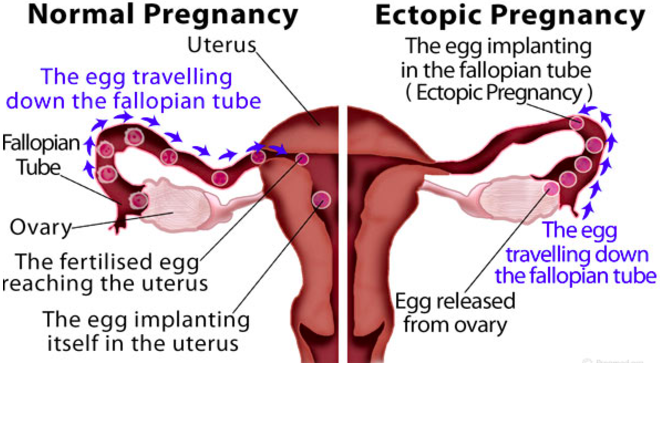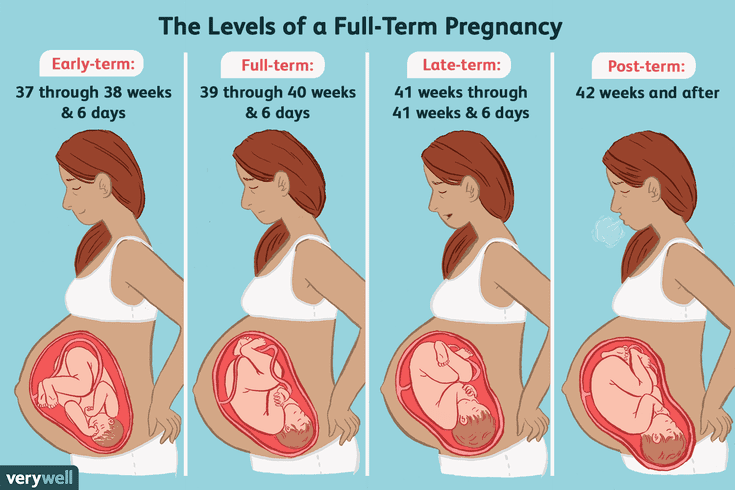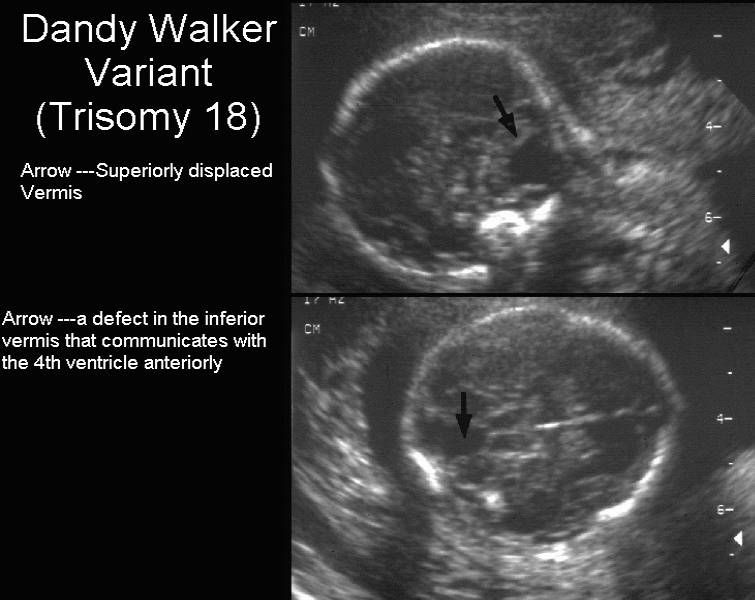Did i miscarry
How to tell if a miscarriage has happened
If you’ve heard the term miscarriage, you probably know that it means the loss of a pregnancy before 20 weeks’ gestation. Miscarriage is something that no one wants to think about during early pregnancy, but 10-20% of all known pregnancies end in miscarriage. Being able to recognize miscarriage symptoms and knowing what to do next can help you be more prepared in case one happens.
Miscarriage symptoms
A miscarriage can happen suddenly or gradually, which means that you may not notice any particularly early symptoms of a miscarriage. But no matter how fast it happens, key symptoms include:
- Pink, red or brown vaginal bleeding or spotting
- Cramps or pain in the lower abdomen
- Passing tissue or blood clots from the vagina
Every miscarriage is different. The heaviest bleeding and cramps may be over within a few hours, but bleeding could continue off and on for as long as three weeks. And although most people experience cramps, a miscarriage isn’t always painful.
Both vaginal spotting and mild cramps are common during early pregnancy, so it’s possible to have a miscarriage and not know it. This is why you should call your care provider if you experience any of the above symptoms once you’ve confirmed your pregnancy.
When do miscarriages happen?
Most miscarriages happen during the first trimester, which is the first 12 weeks of pregnancy. If you’re not tracking your menstrual cycle or fertility, it’s possible to mistake an early miscarriage for a period. And although miscarriages can still happen after the first trimester, the chances drop significantly – to around 3-4%. It’s also possible to have a pregnancy loss after 20 weeks, but this is referred to as a stillbirth. It’s treated differently and is much less common than a miscarriage.
Will a pregnancy test be negative after a miscarriage?
It takes time for your hormones to return to their pre-pregnancy levels after a miscarriage. The amount of the pregnancy hormone human chorionic gonadotropin (hCG) may still be high enough to trigger a positive result on a pregnancy test for several weeks after a miscarriage.
The amount of the pregnancy hormone human chorionic gonadotropin (hCG) may still be high enough to trigger a positive result on a pregnancy test for several weeks after a miscarriage.
What causes miscarriages?
One of the most important things to know about miscarriages is that they’re often caused by things that you have no control over, including:
- Chromosomal abnormalities: This is when a fertilized egg has too many or too few chromosomes. Chromosomal abnormalities account for around half of all miscarriages and are usually random. They can either prevent the embryo from developing or from forming in the first place.
- Uterine or cervical issues: In some cases, conditions related to the uterus or cervix can interfere with embryo development and lead to miscarriage. This includes conditions that create growths or scar tissue in the uterus like endometriosis, pelvic inflammatory disease, and cervical insufficiency – which is when the cervix opens too early, typically in the second trimester.

- Infections: Untreated sexually transmitted infections (STIs) can cause you to miscarry. It’s important to get tested for STIs before you get pregnant, as you can have an infection without symptoms. You may also miscarry if you become infected with listeriosis, which is a type of food poisoning. This is why it’s recommended that you avoid eating certain foods during pregnancy.
In addition to the above, there are other factors that can increase your risk of miscarriage and other pregnancy complications. These risk factors include:
- Age: Pregnancy after age 35 comes with a higher risk of miscarriage. This is because as you age, eggs with extra or missing chromosomes become more common.
- Environmental exposure: Working around or otherwise being exposed to radiation, toxins or contaminants.
- Health conditions: Certain health conditions, like autoimmune disorders, thyroid disorders, severe diabetes and being over- or underweight.

- Lifestyle choices: Smoking, drinking alcohol and using drugs.
- Previous miscarriages: Having two or more miscarriages in a row can be a sign that you have a higher chance of miscarrying in general.
What does NOT cause a miscarriage
Physical activity and sex have not been linked to miscarriage. But if you’re ever unsure about whether something is safe to do during your pregnancy, talk to your care provider.
Some studies have shown that stress or high caffeine intake during pregnancy may increase miscarriage risk. More research is needed, but it’s recommended that you try to manage your stress as best you can, and keep your daily caffeine intake below 200 milligrams.
What to do if you have a miscarriage
Again, if you notice potential symptoms of a miscarriage, call your care provider. They will want to confirm the miscarriage and make sure that you aren’t at risk for heavy blood loss or infection. This is usually done with a pelvic exam and an ultrasound.
Miscarriages frequently resolve on their own without any need for treatment. It may take a few days to pass all of the tissue, and you may have moderate bleeding that lightens over the course of a couple weeks. Seek immediate medical treatment if you have heavy bleeding that does not lighten, fever, weakness or other signs of infection.
Medical treatment for a miscarriage
There’s no treatment that can stop a miscarriage. Instead, miscarriage treatment focuses on preventing excessive blood loss and infection, which can happen if the uterus isn’t completely cleared of tissue. Once a miscarriage has been confirmed, options for treatment may include:
- Medication: Medication can be used to speed up the passing of pregnancy tissue.
- Surgery: If there’s leftover tissue in the uterus or signs of heavy blood loss or infection, a minor surgery called dilation and curettage (D&C) may be performed. In a D&C, the cervix is dilated so that the remaining tissue can be gently removed.
 This option can also be chosen based on preference.
This option can also be chosen based on preference.
Tips for recovering from a miscarriage
- To prevent infection, avoid putting anything in your vagina during a miscarriage, and for two weeks afterwards. This means avoiding sexual intercourse and using pads instead of tampons.
- If you’re having painful cramps during or after a miscarriage, take acetaminophen – follow the label instructions.
- Your iron levels may drop as a result of the bleeding. To offset this and support your body’s blood production, eat a healthy diet that’s high in iron and vitamin C. Iron can be found in red meat, shellfish, beans and leafy green vegetables. Vitamin C can be found in citrus fruit, kiwis, bell peppers and many other vegetables.
- A miscarriage can be an emotionally difficult time, and there’s no right or wrong way to feel. It’s common to experience a variety of emotions, including mood swings, grief, anger and loneliness. Talk with family, friends or a counselor if you’re feeling overwhelmed or need support after a pregnancy loss.

- Be kind to yourself. The physical and emotional toll of a miscarriage can be draining. It’s okay to take a step back from your regular activities if you need to rest and recuperate.
- Once your miscarriage has been confirmed, go to any recommended follow-up appointments, and report new or worsening symptoms to your care provider as soon as possible.
Can you avoid a miscarriage?
After a miscarriage, it’s normal to wonder if you could have done anything differently. Remember, a miscarriage is rarely anyone’s fault, and there’s no sure way to prevent one from happening. That said, there are a few healthy lifestyle choices you can make to minimize your risk:
- If you smoke, drink alcohol or use drugs, quit as soon as possible.
- Get tested for STIs.
- Talk to a medical professional about any health conditions you haven’t had treatment for.
- Stick to any treatment plans or other methods you’ve already been given for managing health conditions.

- Get enough physical activity.
- Eat a balanced diet.
Keep your risk low
If you aren’t pregnant yet, one of the best things you can do to minimize your risk of miscarriage and other complications is to make a preconception appointment. This is an opportunity for your care provider to review your medical and lifestyle histories, and make recommendations that can give your pregnancy the healthiest possible start.
And if you’re already pregnant, stick to your prenatal appointment schedule. Your prenatal appointments ensure that you and your little one are getting all the care you need. Plus, these appointments give your care team the chance to catch signs and symptoms of complications before they affect your pregnancy.
Make a preconception appointment or a prenatal appointment.
Miscarriage Signs & Symptoms | How to Recognize Miscarriage
In This Section
- Miscarriage
- How do I know if I'm having a miscarriage?
The most common signs of a miscarriage are bleeding and cramping. Call your doctor if you think you’re having a miscarriage.
Call your doctor if you think you’re having a miscarriage.
What are the signs of miscarriage?
Sometimes, there are no miscarriage symptoms and you don’t find out until an ultrasound, or you don’t feel pregnant anymore. Usually there are signs and symptoms. They include:
Other things that are less serious than miscarriage can also cause these symptoms. But if you think you might be having a miscarriage, see your doctor right away just to be safe.
What happens during a miscarriage?
Miscarriages are different for every person, but there are some common symptoms.
Not all miscarriages are physically painful, but most people have cramping. The cramps are really strong for some people, and light for others (like a period or less). It’s also common to have vaginal bleeding and to pass large blood clots up to the size of a lemon. Heavy miscarriage bleeding can be scary or surprising, but it’s usually normal.
The bleeding and cramping can end quickly, or it may last for several hours. Your doctor can give you medicine and tips on how to manage pain and cramps during your miscarriage.
Your doctor can give you medicine and tips on how to manage pain and cramps during your miscarriage.
No matter how fast it happens or whether or not it hurts, miscarriage can be upsetting. Keep in touch with your doctor about what’s going on and how you’re feeling. Your doctor can let you know what is and isn’t normal, and give you resources for emotional support if you need it.
What can I expect to feel after having a miscarriage?
There’s no one way that all people feel after having a miscarriage. You may feel a mix of emotions, including disappointment, despair, shock, guilt, grief, and relief — sometimes all at the same time. All of these feelings are really normal, and usually fade as time passes.
Take care of yourself physically and emotionally, and give yourself permission to grieve your loss if you need to. Grief and sadness are very normal responses to miscarriage. Try to surround yourself with supportive and loving people who will let you grieve and comfort you. If you have a partner, they may be grieving the loss and dealing with a range of emotions, too. Talking about your feelings and supporting each other can help you both cope.
If you have a partner, they may be grieving the loss and dealing with a range of emotions, too. Talking about your feelings and supporting each other can help you both cope.
The amount of time it takes to emotionally heal after a miscarriage is different for everyone. Give yourself as much time as you need to grieve. Most people feel better when they have someone supportive to talk to. Even if you don’t think there’s anybody in your life you can lean on, know that you’re not alone. Your nurse or doctor can talk with you, or help you find a counselor or support group in your area. There are also many online support groups, where you can connect with others who are going through the same thing as you. All-Options has a free hotline that gives you a private space to talk about your feelings after a pregnancy loss.
If you want to get pregnant again, your doctor or local Planned Parenthood health center can give you advice on planning your next pregnancy and help you figure out when it’s best to start trying again. They can also give you tips on preventing pregnancy and help you get birth control if you don’t want to get pregnant right now.
They can also give you tips on preventing pregnancy and help you get birth control if you don’t want to get pregnant right now.
What if I’ve had more than 1 miscarriage?
If you’ve had 2 or more miscarriages in a row, your doctor might want to do some tests to help figure out if something specific is causing problems with your pregnancies. The tests will check for any hormonal imbalances, genetic disorders, or other problems. Some conditions can be treated to help you have a healthy pregnancy in the future.
More questions from patients:
What does a miscarriage look like?
Miscarriages look different for everyone, but there are some common symptoms. They include:
-
vaginal bleeding or spotting
-
severe belly pain
-
severe cramping
-
dull, lower-back ache, pressure, or pain
-
a change in vaginal discharge
Other things that are less serious than miscarriage can also cause these symptoms. But if you think you’re having a miscarriage, visit your doctor, your local Planned Parenthood health center, or a hospital right away to be safe.
But if you think you’re having a miscarriage, visit your doctor, your local Planned Parenthood health center, or a hospital right away to be safe.
If it’s a miscarriage, your symptoms may end quickly or last for several hours. The cramps are really strong for some people, and really light for others. The bleeding can be heavy, and you can pass large blood clots up to the size of a lemon.
Sometimes, there are no signs of a miscarriage and you don’t find out until you have an ultrasound, or you don’t feel pregnant anymore.
No matter how fast it happens or whether or not it hurts, going through a miscarriage can be really hard. Keep in touch with your doctor about what’s going on and how you’re feeling. Your doctor can let you know what is and isn’t normal, and give you resources for emotional support if you need it.
Was this page helpful?- Yes
- No
Help us improve - how could this information be more helpful?
How did this information help you?
Please answer below.
Are you human? (Sorry, we have to ask!)
Please don't check this box if you are a human.
You’re the best! Thanks for your feedback.
Thanks for your feedback.
“I had a miscarriage”: how not to be afraid to talk about the experience
- Anastasia Anisimova
- for the BBC
events.
Image copyright ASHLEY MACLURE
Michelle Obama's book, in which she confessed to having suffered a miscarriage, sparked a heated discussion in the West about why women still hesitate to talk openly about this topic. The release of the book coincided with the public confessions of Russian celebrities who also experienced the loss of an unborn child. nine0018
In her biographical book Becoming, the former First Lady of the United States revealed for the first time that she had a miscarriage before giving birth to her daughters, who were conceived through IVF.
- Michelle Obama's "Becoming": What We Learned from Former First Lady's Book
- First Minister of Scotland Admits She Had a Miscarriage
- Going Online for an Abortion: How Women Around the World Get Around Bans
"I felt lost and lonely. I thought this was my problem. I didn’t know then how common miscarriages are. We don’t talk about it in society. We women keep this pain in ourselves. I think this is the worst thing that we ourselves do with ourselves - do not share with each other the truth about our body and about where there are failures, "said the ex-first lady in an interview with ABC television. nine0011
Michelle Obama's confession unexpectedly resonated in Russia. Last week, actress Evelina Bledans recorded a video message on her Instagram to subscribers asking them not to ask her about pregnancy, because "she didn't manage to have girls" (previously, the actress publicly stated that she was pregnant with twins).
A few days later, the NTV channel aired an interview with former State Duma deputy, opera singer Maria Maksakova, who told how she suffered a miscarriage in her second month of pregnancy. nine0011
Image copyright ASHLEY MACLURE
There is a discussion in the Western media about why today, as women gradually win their right to vote in all areas of life, they still talk about miscarriage in a whisper, while most do not talk at all.
"There is some terrible irony in this - millions of women around the world experience an abortion, and no one talks about it out loud," writes the Telegraph - The guilt that a woman holds in herself does not last for any period of time - it can haunt her all her life. Gradually, she just learns to live with it. " nine0011
How does a woman feel?
"A miscarriage is a lonely, painful, and internally destructive experience, practically on a cellular level," writes Michelle Obama in the book.
"A miscarriage is a fear. My fans who went to my concerts may find it hard to believe, but during my second pregnancy, when I sang and danced on stage, I constantly felt inside this paralyzing fear that is born in you when you lose a child. Fear of losing another," recalls singer Beyoncé, who previously also admitted that she had experienced a miscarriage. nine0011
"A miscarriage is when you feel like an unwoman because you couldn't carry a child. You feel like your own body is to blame, it let you down," says artist Ashley Maclure.
image copyrightASHLEY MACLURE
"This is real grief. There is no other way to explain it. At that moment, the main thing I thought about was that I would not be able to give birth next time. After all, the age is already. I I was able to survive it only because I got pregnant after very quickly - after three months. If I hadn’t become pregnant, then I would have gnawed myself, probably, "recalls Maria Maksakova. nine0011
nine0011
Despite the lack of public discussion, hundreds of comments can be found on Russian forums and social media groups from women who are trying to get over a miscarriage and figure out how to tell their parents, relatives, friends and new partners about it.
Why does she feel this way?
"It is difficult for all women to talk about miscarriages - this is a very personal topic. They blame themselves, first of all, for this, not understanding that the reason may lie, for example, in chromosomal abnormalities in the embryo itself, which does not directly depend on the woman ", - Elena Grishanova, a gynecologist, told the BBC Russian Service. nine0011
According to her, women in Russia are often afraid that men will leave them if they find out that they have had a miscarriage. "Women consider it their defect," says Grishanova.
The author of the photo is ASHLEY MACLURE
Psychologists note that the information vacuum affects not only women themselves, but also their partners, who also experience serious stress, and society, which often does not know how to react when a woman decides to talk about his experience. Most simply do not understand what to say to a woman in this situation and how to support her. nine0011
Most simply do not understand what to say to a woman in this situation and how to support her. nine0011
What is real?
Pregnancy and childbirth are often shrouded in prejudice and superstition. It is believed that it is impossible, for example, to photograph an ultrasound machine, many do not recommend cutting their hair during pregnancy, raising their hands high (do not hold on to the handrail on the bus) - and of course, it is not customary to announce your pregnancy in the early stages.
And the latter is far from being only a Russian phenomenon. The Guardian newspaper notes that in England, many women also keep silent about pregnancy in the first weeks and months - just in case, you never know what might happen ...
image copyrightASHLEY MACLURE
It really can happen. In the UK, this happens to one in four pregnancies. In Russia, it is not easy to count the number of miscarriages - Rosstat combines both natural abortion (miscarriage) and artificial (abortion) in one line. Russian Ministry of Health documents state that 10-20% of clinically diagnosed pregnancies end in miscarriage.
Russian Ministry of Health documents state that 10-20% of clinically diagnosed pregnancies end in miscarriage.
Doctors note that the real figure may be higher and includes the percentage of undiagnosed cases - not all women go to the doctor. nine0011
One of the main causes of miscarriage is genetic disorders in the fetus, other factors are also significant: immunological incompatibility of the couple, stress, infections and medications.
The British Women's Miscarriage Association stresses the importance of remembering that the chances of losing a baby due to a woman's own actions - or inaction - are extremely low.
Image copyright ASHLEY MACLURE
Doctors urge women not to hide the pain inside and not to hush up this topic, but to share their experience with loved ones, and especially with their growing children. nine0011
A debate has begun in the US about how teachers should teach students about miscarriages in sex education classes.
"Natural abortion needs to be more integrated into our understanding of pregnancy itself," writes the Washington Post. Textbooks, sex education websites, biology manuals, and pregnancy pamphlets need to provide us and our babies with accurate information. Today The diagrams of embryonic development drawn in textbooks show that a fertilized egg always becomes a child, but we know that this is not so. nine0011
The article uses drawings by the artist Ashley Maclure. Published with the permission of the author. All rights reserved.
Miscarriage, how to avoid - Planning and management of pregnancy in the gynecology of the Literary Fund polyclinic after a miscarriage
- Gallery
- News
- Blog
- Reviews
- Jobs
- Licenses
- Insurance partners nine0103 Controlling organizations
- Schedule of reception of citizens on personal appeals
- What you need to know about coronavirus infection?
- Rules for patients
- Online doctor's consultation
- to corporative clients
- The documents
A miscarriage is always associated with severe consequences for the whole body of a woman and for her reproductive organs in particular, it also affects the family situation, disrupts the woman's work schedule. An unfavorable outcome of pregnancy requires great mental and physical costs on the part of parents. Therefore, contacting doctors to find out the causes of the problem is the very first and correct step towards the birth of a child. nine0011
An unfavorable outcome of pregnancy requires great mental and physical costs on the part of parents. Therefore, contacting doctors to find out the causes of the problem is the very first and correct step towards the birth of a child. nine0011
Any competent gynecologist will tell you that the problem of miscarriage can be solved. With proper preparation for pregnancy and its management, the next time you will have a successful pregnancy. Most girls after a miscarriage go to extremes: they try to get pregnant again as soon as possible. And if this succeeds, then the miscarriage is very often repeated. And you need to give the body a rest for 2-3 months, then identify and eliminate the cause. And only then try.
Causes of miscarriage
Many are convinced that miscarriages are due to a fall, bruise, or some other physical shock. Any woman who has had a miscarriage can remember that not long before she either fell or lifted something heavy. And I am sure that she lost her unborn child precisely because of this. However, those women whose pregnancy was normal also fall and lift heavy things. Most sudden miscarriages do not occur for this reason. The reason is in violations of the pregnancy itself. Approximately half of miscarriages are due to abnormal genetic development of the fetus, which can be hereditary or accidental. Merciful nature, following the principles of natural selection in everything, destroys the defective and unviable fetus. But you should not be afraid of this. The fact that there is a defect in one embryo does not mean at all that all the others will be the same. nine0011
However, those women whose pregnancy was normal also fall and lift heavy things. Most sudden miscarriages do not occur for this reason. The reason is in violations of the pregnancy itself. Approximately half of miscarriages are due to abnormal genetic development of the fetus, which can be hereditary or accidental. Merciful nature, following the principles of natural selection in everything, destroys the defective and unviable fetus. But you should not be afraid of this. The fact that there is a defect in one embryo does not mean at all that all the others will be the same. nine0011
The woman's body is almost always to blame for the other half of miscarriages. They are caused by various known and unknown factors, such as: acute infectious diseases suffered in the first trimester of pregnancy, poor environment or difficult working conditions, excessive psychological or physical stress, abnormal development of the uterus, radiation, alcohol, smoking and certain types of drugs.
The causes of early and late miscarriage may differ, although they may overlap. The most important thing is to find out and eliminate or compensate for your own cause of miscarriage. Having discovered the cause, the gynecologist will tell you how to avoid another loss. nine0011
The most important thing is to find out and eliminate or compensate for your own cause of miscarriage. Having discovered the cause, the gynecologist will tell you how to avoid another loss. nine0011
Miscarriage
Miscarriage statistics also include “missed pregnancy”. Sometimes it happens that the embryo dies and lingers in the uterine cavity. Most often, this fact is detected by ultrasound. The dead fetus may begin to decompose, and this, thereby, will lead to poisoning of the mother's body.
Doctors resort to surgical curettage, which is associated with a risk of inflammation and complications. With such a miscarriage, the next pregnancy is planned after the body is fully restored - not earlier than a year. During this year, you will have to find out the cause of the missed pregnancy and treat it. nine0011
Miscarriage up to 6 weeks
The main causes of miscarriage on this line are malformations of the embryo itself. Statistics say that from 70-90% of embryos had chromosomal abnormalities: they are random and will not occur in other pregnancies.![]() You may have been ill, taken medication, or were under the influence of other harmful factors. Fate saved you from a child with malformations.
You may have been ill, taken medication, or were under the influence of other harmful factors. Fate saved you from a child with malformations.
The human body is perfect and finds a way to correct the situation by miscarriage. Today is a tragedy for you. The real tragedy would be the preservation and birth of a sick, non-viable child. So don’t cry and understand: everything is for the best, you won’t help grief with tears ... And after three months, try again - it will almost certainly turn out to be successful. nine0011
It should also be noted that the fact of a miscarriage does not mean that you have lost something. So for a period of 7-8 weeks, the absence of an embryo in the fetal egg is found - "anembryony". It is believed that in 80-90% of cases, miscarriages are undiagnosed non-developing pregnancies.
Miscarriage between 6 and 12 weeks
Miscarriage during this period is also considered early. Its most common causes are:
Endocrine disorders
Endocrine disorders, when the ovaries do not synthesize enough hormones to keep the fetus in the womb, or the amount of male sex hormones is increased, is one of the most common causes of miscarriage and miscarriage. nine0011
nine0011
Hormone imbalance in a woman's body is likely to lead to an early termination of pregnancy. With a lack of the main hormone progesterone produced by the ovaries, this happens most often. Another hormonal problem is an increase in the tone of the uterus, which provokes the expulsion of the fetus.
Progesterone prepares the uterine mucosa for implantation and is the hormone for maintaining pregnancy in the first months. If conception occurs, the fetus cannot properly establish itself in the uterus. As a result, the fertilized egg is rejected. But pregnancy can be saved with the help of progesterone preparations if this problem is detected in time. nine0011
An excess of male sex hormones that suppress the production of estrogen and progesterone can also be the cause of an early miscarriage. Often, the cause of recurrent miscarriages are androgens that affect the formation and development of pregnancy; as well as thyroid and adrenal hormones. Therefore, a change in the function of these glands can lead to miscarriage.
Undertreated sexual infections
This problem must be solved before conception. Often the cause of miscarriage is sexually transmitted infections: syphilis, trichomoniasis, toxoplasmosis, chlamydia, cytomegalovirus and herpetic infections. Their effect on the fetus and the course of pregnancy is different for each woman and depends on the timing of infection, the activity of the microorganism, the degree of immune protection and the presence of other adverse factors. Depending on the situation, they can lead to the formation of fetal malformations, intrauterine infection, feto-placental insufficiency, early miscarriage or premature birth. Infection of the fetus and damage to the membrane of the fetus leads to miscarriage. To avoid this, infections should be treated before pregnancy. The use of therapy is possible during pregnancy as prescribed by a doctor. nine0011
Viral infections and other diseases
Any disease accompanied by intoxication and fever above 38 about C can lead to a miscarriage. Rubella, influenza and viral hepatitis occupy a leading position in this list. At a period of 4-10 weeks for pregnancy, ordinary tonsillitis can also become tragic, pneumonia carries a more serious risk. Pyelonephritis and appendicitis can cause early labor. When planning a pregnancy, it is imperative to undergo a medical examination in order to identify and treat foci of infections. nine0011
Rubella, influenza and viral hepatitis occupy a leading position in this list. At a period of 4-10 weeks for pregnancy, ordinary tonsillitis can also become tragic, pneumonia carries a more serious risk. Pyelonephritis and appendicitis can cause early labor. When planning a pregnancy, it is imperative to undergo a medical examination in order to identify and treat foci of infections. nine0011
Extremely dangerous during pregnancy rubella - it leads to severe fetal malformations, so infection during pregnancy is an indication for medical abortion.
Any disease during pregnancy can lead to non-viability of the fetus. And the body, through a miscarriage, insures you against unwanted offspring. With such a miscarriage, the next pregnancy has every chance of going well.
Immune causes of miscarriage
Sometimes antibodies that are hostile to the fetus are formed in the blood of a pregnant woman. This cause can be predicted and eliminated in advance. Most often, the conflict occurs when the embryo inherits the positive Rh factor of the father, and the negative Rh factor, the mother's body rejects the embryonic tissues that are alien to it. Constant monitoring of antibody titer and the introduction of anti-Rhesus immunoglobulins allows you to maintain and maintain pregnancy. In case of an immune conflict, progesterone preparations are also used to prevent miscarriage, which in this case has an immunomodulatory effect. nine0011
Most often, the conflict occurs when the embryo inherits the positive Rh factor of the father, and the negative Rh factor, the mother's body rejects the embryonic tissues that are alien to it. Constant monitoring of antibody titer and the introduction of anti-Rhesus immunoglobulins allows you to maintain and maintain pregnancy. In case of an immune conflict, progesterone preparations are also used to prevent miscarriage, which in this case has an immunomodulatory effect. nine0011
Reduced immunity
Reduced immunity during pregnancy also refers to immune causes. The body is simply not able to grow a new life in itself. You need to take care of yourself and recover before the next conception.
Anatomical causes of miscarriage
Anatomical causes of miscarriage are the most intractable. Malformations of the uterus are a serious reason for miscarriage. Sometimes you just have to deal with it.
Miscarriage between 12 and 22 weeks
Such a miscarriage is considered late. Its causes coincide with the causes of miscarriages in the early stages (anatomical, immune, infectious, endocrine).
Its causes coincide with the causes of miscarriages in the early stages (anatomical, immune, infectious, endocrine).
At this time, miscarriage also occurs due to isthmic-cervical insufficiency - a weak cervix cannot hold the fetus and opens. For this reason, a miscarriage can occur in the 2nd or 3rd trimester. Isthmic-cervical insufficiency is observed in 15.0-42.7% of women suffering from miscarriage. Careful monitoring of the pregnant woman allows you to identify the problem in time and make surgical correction of the cervix before the onset of childbirth. nine0011
In isthmic-cervical insufficiency, there is only one method of treatment - a mechanical narrowing of the cervical canal. To do this, the neck is either sewn up or a special ring is put on it. However, the latter method is less efficient, because the ring can easily slide off the neck, then it will no longer hold back the process of opening it.
After suturing, if necessary, it is possible to use antibiotics and drugs that normalize the microflora of the vagina. The treatment of the vagina and the control of the state of the seams are carried out daily for 5 days. Stitches are removed at 37-38 weeks and with premature onset of labor. nine0011
The treatment of the vagina and the control of the state of the seams are carried out daily for 5 days. Stitches are removed at 37-38 weeks and with premature onset of labor. nine0011
Isthmic-cervical insufficiency may be primary (for no apparent reason), may be the result of abortion or hormonal disorders (increased levels of androgens - male sex hormones or their precursors).
Miscarriage after 22 weeks
Such a loss is hard to forget. Obstetricians talk about premature birth after the 28th week of pregnancy. Traditionally, a child born after this period is considered viable. But medicine knows many cases when it was possible to save the life of earlier children. nine0011
We recommend that you be carefully examined for miscarriage, check the above factors. In addition to them, the cause of a miscarriage can be antiphospholipid syndrome, while the woman's body perceives the child as something alien and rejects it. This disease, like the others listed, can be corrected; you have a very real chance of bearing a child.
Miscarriages due to hemostasis disorders
All of the above causes account for only 30-40%. Up to 70% of miscarriages are caused by disorders in the blood coagulation system (hemostasis). nine0011
Blood coagulation disorders leading to pregnancy loss can be divided into thrombophilic (increased clotting) and hemorrhagic (bleeding tendencies). Both of these extremes are dangerous to the fetus. Various disorders leading to the formation of small blood clots lead to the fact that the fetus loses sufficient blood supply, development is disturbed and the fetus is rejected.
The main hemorrhagic changes can manifest themselves even in childhood in the form of increased bleeding during cuts, extractions of teeth, the onset of menstruation. But sometimes they declare themselves only during pregnancy and are the cause of a miscarriage. Bleeding in the early stages and detachment of the chorion is difficult to stop. nine0011
You may not guess, but incomprehensible headaches, weakness, fatigue, temporary loss of smell or hearing may be symptoms of disorders in the blood clotting system.












